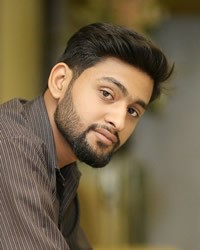Urdu in Ireland

Photo Source:
Muzaffar Somro - Pixabay
|
Send Joshua Project a map of this people group.
|
| People Name: | Urdu |
| Country: | Ireland |
| 10/40 Window: | No |
| Population: | 8,400 |
| World Population: | 2,927,200 |
| Primary Language: | Urdu |
| Primary Religion: | Islam |
| Christian Adherents: | 0.00 % |
| Evangelicals: | 0.00 % |
| Scripture: | Complete Bible |
| Ministry Resources: | Yes |
| Jesus Film: | Yes |
| Audio Recordings: | Yes |
| People Cluster: | South Asia - other |
| Affinity Bloc: | South Asian Peoples |
| Progress Level: |
|
Introduction / History
The term "Urdu" does not adequately describe the Urdu people as such but is merely a language distinction. Urdu, now the official language of Pakistan, is an Indo-Iranian language that developed from the Hindi language. It is heavily laden with Persian and Arabic words and is written in the Persian script. Urdu-speaking Muslims are not an ethnic group in the strictest sense but are rather a collection of ethnic groups who have been widely dispersed geographically. They possess a sense of "group identity" based on linguistic, cultural and historical factors.
A majority of the Urdu speakers originate in Pakistan and the northern states of India. However, in recent years, many Urdu-speaking Muslims have emigrated to European countries like Ireland, searching for economic opportunities.
Urdu speaking Pakistanis in Ireland gravitate to the capital city of Dublin along with Cork, Limerick City, or Munster.
What Are Their Lives Like?
Urdu speakers are sometimes looked upon with suspicion by the Irish majority. A couple of them have faced attacks in Dublin. Some have found favor by exceling in cricket, which is loved throughout the British Isles as well as South Asia.
Others have integrated well with the Irish majority. They have found a common interest in casual talks over coffee or tea. Some have learned Gaelic, the traditional Irish language.
Urdu speakers in Ireland are often students, medical professionals or businessmen. Some had trouble getting established in the new country, but once they do, they tend to flourish. It is difficult for many of them to be away from South Asia for important events like funerals.
What Are Their Beliefs?
Although the Urdu speakers are all Muslims, this is no longer a unifying factor. There are intense differences among the various Muslim sects; the Hanafites, Shafiites, and Ithna-Asharis. Since entire Urdu communities tended to migrate together, people tend to congregate in Ireland, etc. on the basis of what sect they adhere to. Islam is central to their identity even if they do not practice it.
Others are basically secular like the Irish majority. It is obvious that secularism is becoming the norm for the Irish. Will Urdu Muslims become more secular in the coming generations?
What Are Their Needs?
Very few mission agencies are focusing on the Urdu speaking communities. There needs to be greater efforts to effectively reach Urdu speakers with the gospel in Ireland where there is freedom of religion.
Assuming all Europeans are "Christian," Urdu speakers equate sexual immorality and drunkenness with "Christianity." That is especially true in a country like Ireland where one of the most popular ways to socialize is over a beer. They need to see true Christianity lived out to understand that it has something valid for their families and communities.
Prayer Points
Pray for a "Book of Acts" type of movement to Christ among Urdu speakers in Ireland.
Pray for Urdu speaking people to understand and embrace that Jesus wants to bless their families and neighborhoods.
Pray for Holy Spirit anointed believers from the Urdu speaking people to change their society from within.
Pray for a movement in which the Holy Spirit leads and empowers Urdu speaking disciples to make more disciples.
Pray for a movement of Jesus to heal and strengthen Urdu communities in Ireland.